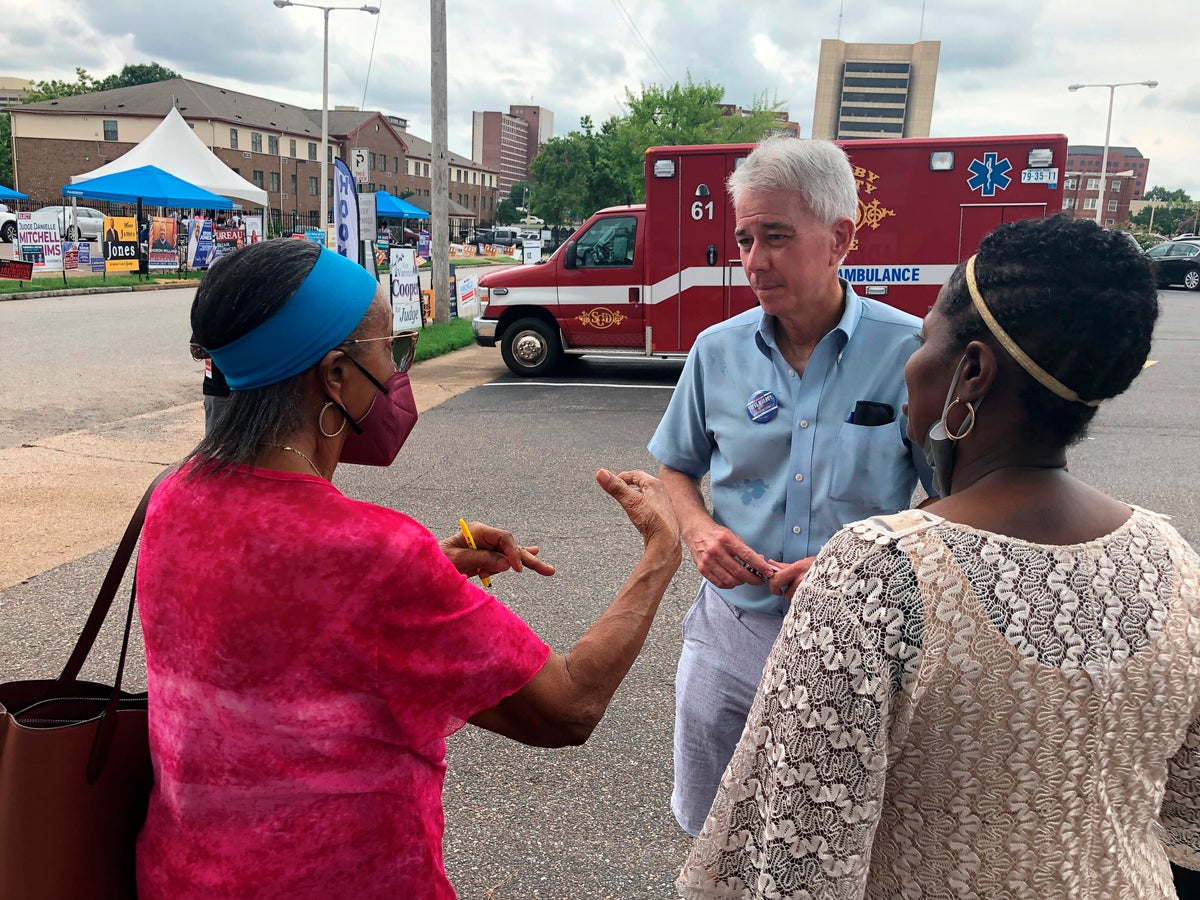
A Democratic lawyer who pledged to make abortion prosecutions under Tennessee’s “trigger law” an extremely low priority in the county that includes Memphis has defeated the incumbent Republican district attorney who refused to say whether she would go after doctors who perform the procedure.
Steve Mulroy scored a decisive win over Shelby County District Attorney Amy Weirich in Thursday’s election after a contentious race that featured clashes over abortion prosecutions as well as a new state law requiring strict sentencing for violent crimes and other issues.
Mulroy takes office Sept. 1. He said his top priority is consulting with staff to develop strategies to combat violent crime, which is a persistent problem in Memphis.
“I'm looking forward to getting to know the people in the DA's office, both the leadership and the line attorneys,” he said Friday.
A longtime prosecutor, Weirich has been the district attorney in Shelby County county since 2011. She oversaw successful prosecutions in high-profile cases such as the murder of NBA player Lorenzen Wright and developed a program that uses a panel of community members to hold low-level offenders accountable without sending them to jail.
Weirich also has been the center of criticism. She came under fire for the prosecution of Black Lives Matter activist Pamela Moses, who was charged with trying to register to vote illegally. Moses, who had prior felonies, was convicted and sentenced to six years in prison. At the time, legal experts said the sentence was excessive.
In February, a judge threw out the sentence and ordered a new trial after it was found that the Tennessee Department of Correction failed to turn over a necessary document in the case. Weirich decided not to pursue a second trial “in the interest of judicial economy,” she said at the time.
Weirich also accepted a private reprimand for her actions as lead prosecutor in the 2009 trial of Noura Jackson, who was convicted of fatally stabbing her mother more than 50 times.
Weirich had faced a recommendation of public censure on charges that she did not turn over a key witness statement to the defense until after the trial and that she improperly commented on Jackson’s right to remain silent.
Jackson was eventually released from prison after entering an Alford plea, which allows a defendant to avoid admitting guilt but acknowledges there is enough evidence to convict.
Mulroy, a law professor, civil rights lawyer and former federal prosecutor, and Weirich argued over Tennessee’s new “truth in sentencing” law, which requires serving entire sentences for various felonies, including attempted first-degree murder, vehicular homicide resulting from the driver’s intoxication and carjacking.
In an Associated Press interview, Weirich said the law helps ensure justice for victims of violent crimes and makes those who break the law more accountable.
In a separate AP interview, Mulroy said the law does not reduce crime or provide incentives for incarcerated people to rehabilitate and earn credit for work done in prison. The law drives up Tennessee’s prison populations and budgets, using funds that could be better spent on youth intervention and community reentry programs, he said.
The candidates also battled over Tennessee’s pending abortion trigger law, which could take effect later this month.
The Tennessee trigger law would essentially ban all abortions statewide, except in cases when the procedure is necessary to prevent the pregnant person’s death or serious impairment “of a major bodily function.”
The law would make performing an abortion a felony and subject doctors to up to 15 years in prison if convicted.
In the AP interview, Mulroy said the criminal justice system is not the appropriate forum to “handle reproductive choice matters” and abortion prosecutions would be an “extremely low priority” for him.
Weirich never said outright whether she would or wouldn’t prosecute doctors who perform abortions. She said it would be a violation of Tennessee code for her office “to issue a broad and hypothetical statement without an actual charge or case.”
The DA contest is an example of abortion becoming an issue in underticket races, including battles for state attorney general. Democrats in Arizona, California, Georgia, Michigan Minnesota, Nevada, Ohio and elsewhere are portraying themselves as backstops against potentially more restrictions on abortion rights, while many Republicans seeking to win or retain seats as their states’ top lawyers are vowing to support tougher laws.
Weirich told supporters Thursday night that she would continue to fight for crime victims and “it’s been a great honor to serve.”







